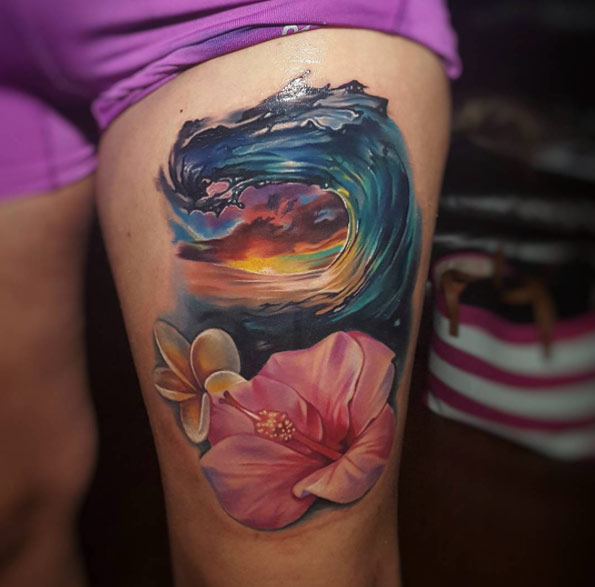

As freeing and romantic as it may feel, many beaches are just plain dirty. You’re better off not running barefoot on the sand. And if you only see one set of footprints, it was then that I carried you. So if you run one way up the beach, plan to make it a round trip. Baker advises retracing your steps on a beach run to even out the experience. That means your gait will be a little off kilter, with each foot on slightly different elevation. “You have to go a lot slower and just be nicer to yourself, because it’s not going to be the same.”Īlso, while it might be more apparent on some beaches than others, your running surface is bound to be slanted slightly toward the water. “If you just go balls-to-the-wall on loose sand, it's not going to be comfortable,” Baker says. Try to start close to the water where the sand is firmer, then work your way up to looser sand. Take it slow and steady when you first start running on the beach, Baker says. The older you get, it turns out, your body doesn't like that as much.”

“There's more opportunity for injury because your muscles are getting lengthened quicker. “You have complete range of motion in the sand,” Baker says. The immediate impact of slapping your feet against a hard slab is lessened, but then you’re pushing off from a shifting, unstable surface. Running in sand is easier on the body in some ways and tougher in others. On surfaces softer than that, it gets tricky. Running on hard-packed dirt is ideal, since it’s got just enough give to lessen the blows against your poor knees. If the answer is ‘Many,’ I am willing to share it.” ( Baker, a running coach in Seattle, Washington, ranks surfaces hierarchically: Concrete is the worst, followed by asphalt. When I am writing, the question I ask myself most often is ‘Who cares?’ If my answer is ‘No one,’ that poem gets zapped.

Living with a husband with dementia, however, creates a new definition of what it means to be a single mother-my oldest child is 77. The mother often is the caretaker, worrier, and the go-to parent. Susan Terris: “In some way, all mothers, as ‘Rough Ties’ says, are single. No strings, and I-though married-am single. Today, in the cove ofĪn unpredictable ocean, I search for this girl-woman Fun, she said,Īs she coughed up seawater. She turns away at Baker Beach, and the undertow Look, is there any father in this picture calling, Be careful. In her flowered tank suit and doesn’t glance back. Thirty or forty, a mother often wishes forĪ sweaty palm tugging at rough ties or a handīlossoming is the first time the child walks into the ocean Single, partnered, or not-of what another generationĬalled apron strings. This is about the long arc of letting go. This isn’t epidurals, breastfeeding, or 2 a.m.


 0 kommentar(er)
0 kommentar(er)
